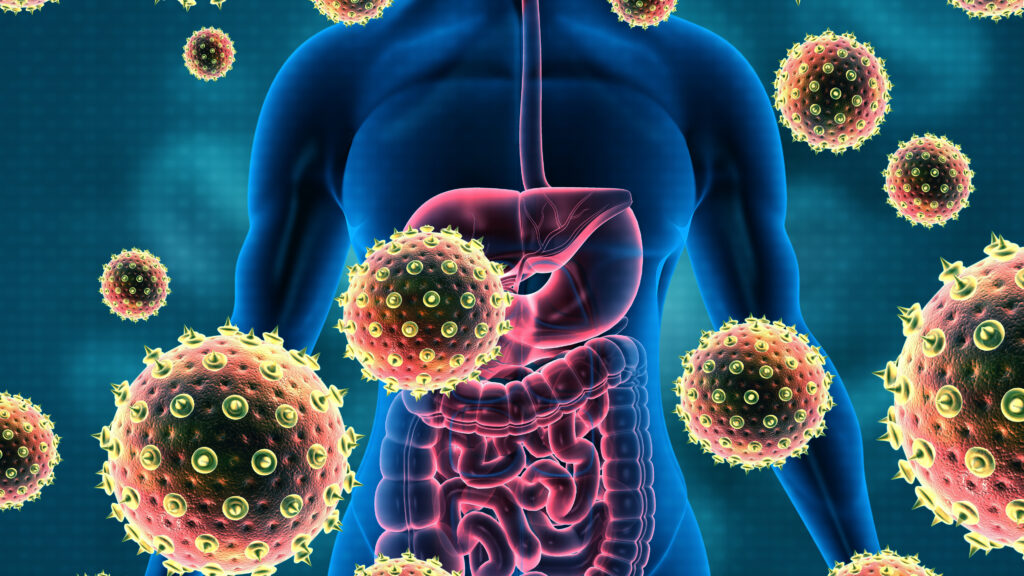The connection between infection and chronic disease is one I know personally. A few years ago, I was diagnosed with oral cancer. My doctors tracked the cause to a human papillomavirus (HPV) infection I’d had many decades earlier.
I am 69, and when I was growing up, there was no HPV vaccine like there is today — a vaccine developed thanks to infectious disease research. It’s estimated to prevent 90% of HPV-related cancers. If I had been born in a different time, I would have received the vaccine and likely would have been spared from this cancer.
advertisement
Thankfully, I’ve been successfully treated and am in remission. But my experience of a viral-induced cancer — one shared by millions — raises a point that’s missing in the current, post-election debate about what type of health research our country should prioritize.
Robert F. Kennedy Jr., whom President-elect Donald Trump plans to nominate for Health and Human Services secretary, has publicly called for U.S. government-funded medical research to focus on chronic illnesses like diabetes, heart disease, obesity, and cancer, while taking “a break” on infectious disease research.
It is not an either/or situation.
advertisement
Prioritizing chronic conditions, defined as those lasting longer than three months, actually means prioritizing infectious diseases, which are caused by infectious organisms like viruses, bacteria, and parasites. Infection, we are appreciating more and more, plays an important role in these chronic conditions.
Limiting the study of infectious diseases would worsen the chronic disease epidemic. Research into the interconnections between the two is integral, not optional, to solving the crisis.
We are only just recently beginning to unravel the role that bacteria and viruses have in chronic conditions. For example, we know that they cause an estimated 13% of cancers worldwide, according to the American Association for Cancer Research — and this is likely a very conservative percentage. Not everyone who gets an infection will develop cancer — far from it. But millions do. What makes some more likely to develop a chronic condition like cancer? This is a question that researchers are working to answer.
Before the 1980s, stomach ulcers were thought to be caused by stress and lifestyle. Then two Australian scientists discovered a bacterium, Helicobacter pylori, is the cause of stomach inflammation (gastritis), and the widespread inflammation can predispose individuals to stomach ulcers and cancer. The finding was so novel at that time, it was awarded the Nobel Prize in 2005 and inspired others to search for microbial causes for other common chronic inflammatory conditions.
The list goes on: Epstein-Barr virus, one of the nine herpesviruses known to infect humans, is associated with several diseases, including mononucleosis, a form of cancer (lymphoma), and autoimmune diseases like systemic lupus erythematosus (also known as lupus) and multiple sclerosis (MS). Chagas disease, which is caused by a parasite spread by infected triatomine bugs (also known as kissing bugs), can cause chronic heart problems and even heart failure.
Evidence is growing that infections from herpes, pneumonia, syphilis, Lyme disease, and gum disease contribute to development of neurodegenerative diseases such as Alzheimer’s. Enteroviruses are linked with the development of type 1 diabetes. More research is needed to understand these associations and then find ways to intervene.
advertisement
A key link between infectious disease and chronic disease is inflammation. When we get sick or scrape a knee, our bodies mount an immune response to fight the invading infection — redness, swelling, heat, and pain are all signs of inflammation. A little bit of inflammation helps us heal. But if inflammation continues for too long or begins to attack healthy tissues, it becomes chronic and harmful. This state of chronic inflammation can trigger chronic diseases.
Long Covid is a recent example. The virus SARS-CoV-2, which causes Covid-19, leads to short-term inflammation in many people. But 17 million adults in the U.S. continue to experience a range of ongoing, long-term health issues, including extreme fatigue and impaired cognitive function.
Many of America’s overall health issues are related to chronic conditions — which in total account for 90% of the $4.5 trillion health care expenditures — and should be studied and addressed, including infection.
While research has intensified into the complex interactions between infection and chronic disease over the past 15 years, there is much we still do not understand. How do genetics, environment, and other health conditions influence these interactions? What is the impact of aging on immunity, response to infection and chronic diseases?
One thing is for sure — we all get infections throughout our lives. It is imperative we continue investing as a nation into how infectious diseases contribute to inflammation and chronic conditions.
We must tackle both to truly improve America’s health.
Larry Schlesinger, M.D., an internationally recognized authority in infectious diseases, is a physician-scientist with more than 30 years researching lung immunology and diseases like tuberculosis. He is professor, president, and CEO of Texas Biomedical Research Institute, a nonprofit research organization in San Antonio, Texas.

